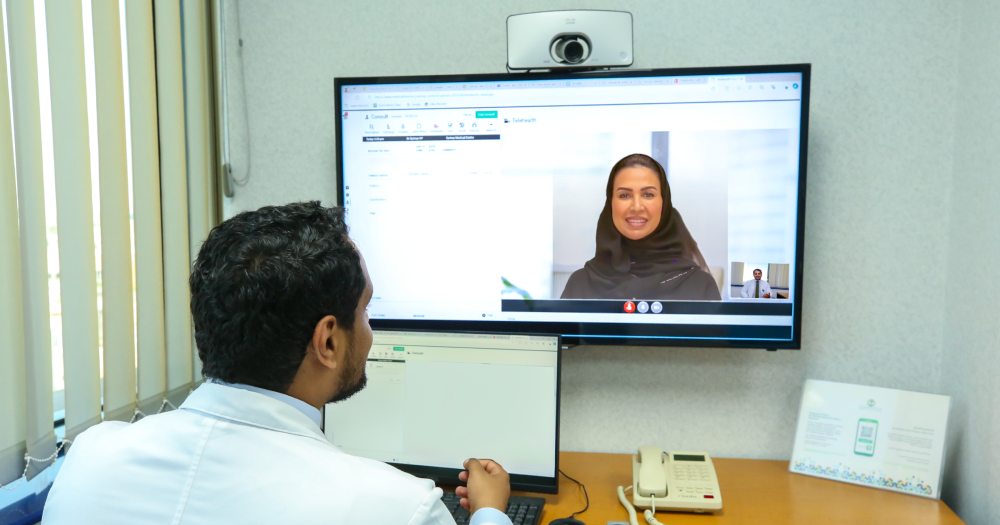Saudi Arabia’s King Faisal Specialist Hospital provided nearly 300,000 virtual consultations in 2024

Nearly 300,000 times in 2024, a patient in Saudi Arabia tapped their phone or opened a laptop instead of stepping into a clinic at King Faisal Specialist Hospital and Research Centre (KFSHRC). That number — 293,381 virtual consultations to be exact — marks a staggering 58.2% jump from the previous year. It's not just a statistic. It's a signpost that telehealth has shifted from novelty to necessity, cementing itself as a cornerstone of modern healthcare delivery in the Kingdom.
As KFSHRC puts it, virtual care has become "central to the hospital's model," allowing people to skip traffic jams, long commutes, and crowded waiting rooms — without skipping out on care.
How does it work?
Launched in 2021, KFSHRC's virtual consultation program was designed with a clear mission: spare patients in remote towns and villages the grind of traveling to major cities for routine appointments.
- Patients connect with specialists through secure digital channels, often from the comfort of their living rooms.
- The setup particularly benefits elderly patients and those with chronic conditions who once had to make repeat hospital visits.
- With more than 800 online consultations happening each day, the hospital has been able to keep outpatient clinics unclogged, staff resources focused, and standards of care high across the board.
In 2024, KFSHRC didn't stop at consultations. It rolled out a virtual pharmacy service within its mobile app. Now patients can book appointments under the "Virtual Care" option to chat with pharmacists about alternatives, dosage tweaks, or treatment plans. That means less guesswork, fewer trips, and more confidence that medications are managed properly.
Why does it matter?
The value of this shift is twofold. First, patients win. Their quality of life improves because they don't have to endure constant travel, and they gain faster access to specialized care. Second, the system itself wins. Virtual visits reduce pressure on physical facilities, helping the hospital allocate its resources more efficiently.
The hospital makes no secret of its aim: make healthcare both more humane and more efficient. "These programs demonstrate how KFSHRC is making healthcare more accessible and efficient, while keeping patients at the center of care," the institution has emphasized. By blending digital platforms with clinical expertise, the hospital is shortening waiting times, cutting unnecessary visits, and ensuring care finds the patient — not the other way around.
The context
This digital health momentum dovetails neatly with Saudi Arabia's Vision 2030, an ambitious national blueprint that includes healthcare transformation as a top priority. By embedding telemedicine into daily practice, KFSHRC is proving that the Kingdom's healthcare system can be both cutting-edge and people-centered.
The recognition is rolling in. KFSHRC was ranked first in the Middle East and North Africa and 15th worldwide among the top 250 Academic Medical Centers — no small feat. Brand Finance crowned it the most valuable healthcare brand in both Saudi Arabia and the wider region in 2024. On top of that, Newsweek listed it among the world's 250 best hospitals and named it to the "World's Best Smart Hospitals" list for 2025.
Put simply: this isn't a hospital chasing headlines. It's a hospital rewriting what patient care looks like in the 21st century.
💡Did you know?
You can take your DHArab experience to the next level with our Premium Membership.👉 Click here to learn more
🛠️Featured tool
 Easy-Peasy
Easy-Peasy
An all-in-one AI tool offering the ability to build no-code AI Bots, create articles & social media posts, convert text into natural speech in 40+ languages, create and edit images, generate videos, and more.
👉 Click here to learn more


